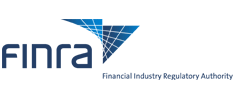FINRA Fines Banorte-Ixe Securities $475,000 for Inadequate Anti-Money Laundering Program and for Failing to Register Foreign Finders
/Banorte-Ixe Securities International, Ltd. and Brian Anthony Simmons Action
WASHINGTON — The Financial Industry Regulatory Authority (FINRA) announced today that it has fined Banorte-Ixe Securities International, Ltd., a New York-based securities firm that services Mexican clients investing in U.S. and global securities, $475,000 for not having adequate anti-money laundering (AML) systems and procedures in place and for failing to register approximately 200 to 400 foreign finders who interacted with the firm's Mexican clients. FINRA also suspended Banorte Securities' former AML Officer and Chief Compliance Officer, Brian Anthony Simmons, for 30 days in a principal capacity, as he was responsible for the firm's AML procedures and for monitoring suspicious activities. As a result of the firm's AML compliance failures, Banorte Securities opened an account for a corporate customer owned by an individual with reported ties to a drug cartel, and did not detect, investigate or report the suspicious rapid movement of $28 million in and out of the account.
Brad Bennett, FINRA Executive Vice President and Chief of Enforcement, said, "FINRA continues to focus on the activities of foreign finders and the effectiveness of member firms' AML programs. When foreign finders function as associated persons, they need to be properly registered with a U.S. broker-dealer. When firms accept customers who are located in high-risk jurisdictions, their AML programs need to be carefully tailored and robust to address the risks inherent in this activity."
FINRA found that Banorte Securities' AML program failed in three respects. First, the firm did not properly investigate certain suspicious activities. The Bank Secrecy Act requires broker-dealers to report certain suspicious transactions that involve at least $5,000 in funds or other assets to the Financial Crimes Enforcement Network. Banorte Securities lacked an adequate system to identify and investigate suspicious activity, and therefore failed to adequately investigate and, if necessary, report activity in three customer accounts. In one example, it failed to adequately vet a corporate customer in Mexico who deposited and withdrew a substantial amount of money within a short period of time—$25 million in a single month—a "red flag" for suspicious activity. A few weeks later, the same customer transferred $3 million into and out of another corporate account via two wire transfers two and a half weeks apart. Had Banorte Securities conducted a simple Google search in response to the suspicious movement of funds, it would have learned that one of the owners of the corporate customer had been arrested by Mexican authorities in February 1999 for alleged ties to a Mexican drug cartel.
Secondly, Banorte Securities did not adopt AML procedures adequately tailored to its business, relying instead on off-the-shelf procedures that were not customized to identify the unique risks posed by opening accounts, transferring funds and effecting securities transactions for customers located in Mexico, a high-risk jurisdiction for money laundering, or the risks that arose from the firm's reliance on foreign finders. Third, Banorte Securities did not fully enforce its AML program as written.
In addition, FINRA found that from January 1, 2008, to May 9, 2013, Banorte Securities failed to register 200 to 400 foreign finders. The firm's Mexican affiliates employed foreign finders who not only referred customers to Banorte Securities but also performed various activities requiring registration as an associated person, including discussing investments, placing orders, responding to inquiries, and in some instances, obtaining limited trading authority over customer accounts. The firm had previously registered individuals performing the same functions prior to July 2006.
In settling this matter, Banorte Securities and Simmons neither admitted nor denied the charges, but consented to the entry of FINRA's findings.
Investors can obtain more information about, and the disciplinary record of, any FINRA-registered broker or brokerage firm by using FINRA's BrokerCheck. FINRA makes BrokerCheck available at no charge. In 2013, members of the public used this service to conduct 16.5 million reviews of broker or firm records. Investors can access BrokerCheck atwww.finra.org/brokercheck or by calling (800) 289-9999. Investors may find copies of this disciplinary action as well as other disciplinary documents in FINRA's Disciplinary Actions Online database.
FINRA, the Financial Industry Regulatory Authority, is the largest independent regulator for all securities firms doing business in the United States. FINRA is dedicated to investor protection and market integrity through effective and efficient regulation and complementary compliance and technology-based services. FINRA touches virtually every aspect of the securities business – from registering and educating all industry participants to examining securities firms, writing rules, enforcing those rules and the federal securities laws, informing and educating the investing public, providing trade reporting and other industry utilities, and administering the largest dispute resolution forum for investors and firms. For more information, please visit www.finra.org.



